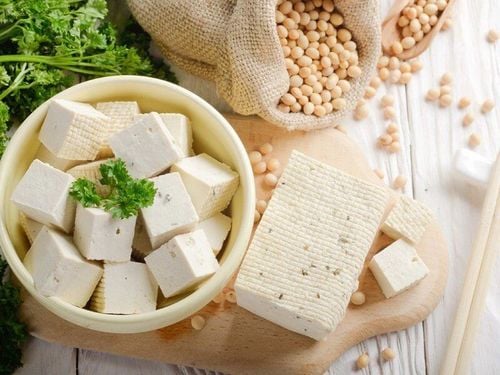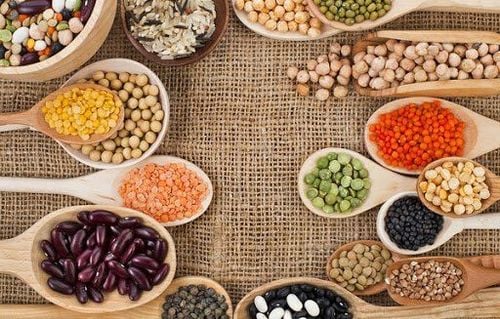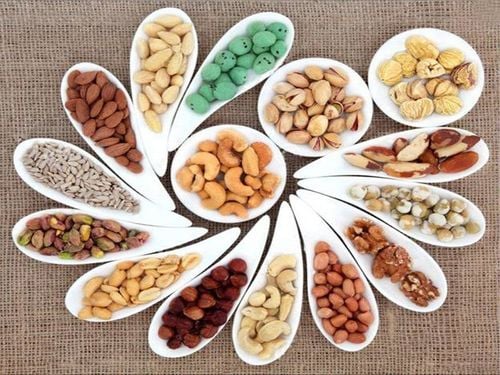This is an automatically translated article.
Tofu and peanuts are nutritious and healthy foods. However, like most plant foods, they will contain some antinutrients.
1. Nutrition in Tofu
1.1. Nutritional value in tofu Tofu is a food made from concentrated soy milk, pressed into thick white masses in a process quite similar to cheese making. It originates from China.
Most of the world's soybeans are currently grown in the US and a very large percentage are genetically modified (GMO). Although GMOs are controversial, research to date has not found them harmful to human health. However, if you're worried about that, just choose non-GMO organic brands of tofu.
Tofu is high in protein and contains all the essential amino acids that the body needs. It also provides fats, carbs, and a variety of vitamins and minerals.
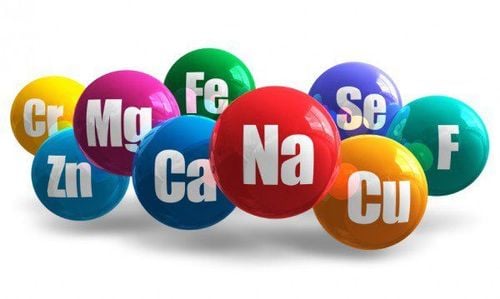
Đậu phụ là nguồn cung cấp vitamin và khoáng chất dồi dào
A 3.5-ounce (100g) serving of tofu includes:
Protein: 8 grams Carbs: 2 grams Fiber: 1 gram Fat: 4 grams Manganese: 31% RDI Calcium: 20% RDI Selenium: 14% RDI Phosphorus: 12% RDI Copper: 11% RDI Magnesium: 9% RDI Iron: 9% RDI Zinc: 6% RDI This makes tofu a nutrient-dense food. However, the micronutrient content of tofu can vary depending on the coagulant used. Tofu is low in calories but rich in protein and fat. It also contains many important vitamins and minerals.
Like most plant foods, tofu contains a number of antioxidants, including:
Trypsin inhibitors: These compounds block trypsin, an enzyme needed to properly digest proteins. . Phytates: may reduce the absorption of minerals, such as calcium, zinc, and iron. However, soaking or cooking soybeans can inactivate or remove some of these antioxidants. Soybean sprouting before tofu reduces phytates by 56% and trypsin inhibitors by 81% while also increasing protein content by up to 13%. Fermentation can also reduce antitoxins. For this reason, fermented, probiotic soy foods — like miso, tempeh, tamari, or natto — are low in antioxidants.
Tofu's antioxidant content is not a concern unless you are following an unbalanced diet and relying on tofu as your main source of iron or zinc.
Soybeans contain natural plant compounds called isoflavones. Many of the health benefits of tofu are attributed to its high isoflavones content.
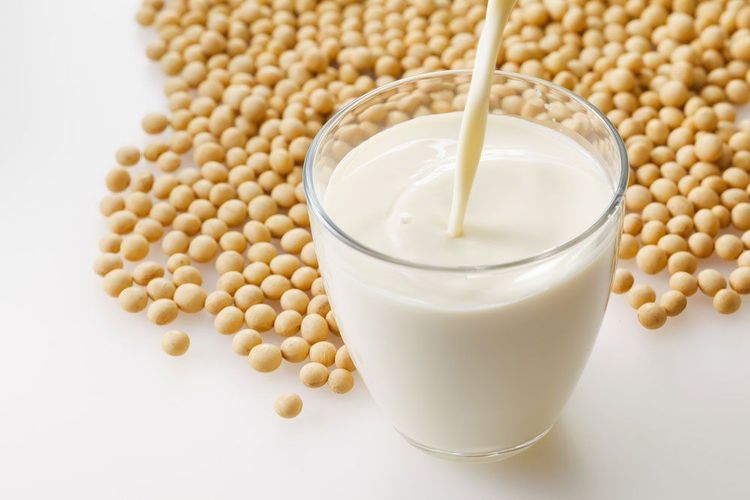
Đậu nành chứa nhiều insoflavone tốt cho sức khỏe phụ nữ
1.2. Benefits of Tofu Heart Health: Only a few studies have specifically looked at the effects of tofu on heart health. However, research has shown that a high intake of legumes, including soybeans, is associated with a lower incidence of heart disease. Scientists have also found that soy isoflavones can reduce inflammation of blood vessels and improve their elasticity. One study found that supplementing with 80 mg of isoflavones daily for 12 weeks improved blood flow by 68% in people at risk of stroke.
Taking 50 grams of soy protein per day improves blood fats and reduces the risk of heart disease by 10%. Furthermore, for postmenopausal women, high soy isoflavones have been linked to several heart-protective factors, including improvements in body mass index, waist circumference, fasting insulin, and cholesterol. Good HDL. Finally, tofu contains saponins, compounds believed to have protective effects on heart health.
Studies have looked at the effects of tofu on the breast, prostate, digestive system....
Reduced risk of breast cancer : A study found that women who supplemented with the product Soybeans such as tofu at least once a week lower the risk of breast cancer by 48-56%. This protective effect is thought to come from isoflavones, which have also been shown to positively affect the menstrual cycle and blood estrogen levels. It is best to use soybeans early to be able to protect the body in the best way.
In fact, research shows that women who consume soy products at least once a week during adolescence and adulthood have a 24% lower risk of breast cancer than women who only use soy products. soy consumption during adolescence.
Some argue that tofu and other soy products may increase the risk of breast cancer. However, a two-year study in postmenopausal women who consumed two servings of tofu per day found no increased risk.

Người sử dụng các sản phẩm từ đậu nành có khả năng bị ung thư vú thấp hơn
Other studies have found similar results, including a review of 174 studies, that found no link between soy isoflavones and breast cancer risk.
Reduce the risk of stomach cancer: A study has shown that eating a lot of tofu reduces the risk of stomach cancer by 61% in men and 59% in women. Furthermore, a recent review of research conducted on 633,476 people found an association between soy product consumption and a 7% lower risk of gastrointestinal cancer. Reduces risk of prostate cancer: Review studies show that men who consume higher amounts of soy products, especially tofu, have an approximately lower risk of prostate cancer. 32%-51%. Experts confirmed the findings of this study, stating that the benefits of isoflavones may depend on the amount consumed and the type of gut bacteria present. Lowers the risk of diabetes: Several recent test-tube and animal studies suggest that soy isoflavones may enhance blood sugar control. In one study done in healthy postmenopausal women, a supplement of 100 mg of isoflavones per day reduced blood sugar levels by 15% and insulin levels by 23%. For postmenopausal women with diabetes, supplementing with 30 grams of soy protein reduced insulin levels by 8.1%, insulin resistance by 6.5%, bad LDL cholesterol by 7.1%, and total cholesterol by 4.1%. In another study, taking isoflavones every day for a year improved insulin sensitivity and blood lipids, reducing the risk of heart disease. Some other benefits: Due to its high isoflavones content, tofu also offers a number of other benefits, including: Bone health: Scientific data shows, supplementing with 80 mg of isoflavones found in soybeans per day can reduces bone loss, especially during early menopause Supports brain function: Isoflavones may have positive effects on memory and brain function, especially for women over 65 menopause: isoflavones may help reduce hot flashes Skin elasticity: Taking 40 mg of isoflavones daily significantly reduced wrinkles and improved skin elasticity after 8 to 12 weeks Weight loss: One study shows that taking isoflavones can help with weight loss

Isoflavone có trong đậu nành hỗ trợ giảm cân hiệu quả
Eating tofu and other soy foods every day is generally considered safe. However, you need to control your daily intake:
Breast tumor: Due to the weak hormonal effect of tofu, women with breast tumors are sensitive to estrogen, so soy should be limited. Thyroid problems: Some experts also recommend that people with poor thyroid function avoid tofu due to its goitrogen content. However, a recent report by the European Food Safety Authority (EFSA) concluded that isoflavones found in soybeans and soy products pose no concern for thyroid function or breast cancer. uterus.
However, researchers agree that infants should not be exposed to isoflavones found in soy, which can lead to disruption of the development of reproductive organs. Although this has not been well studied in humans, some animal studies suggest that high soy intake may have a negative effect on fertility.
2. Nutrition in peanuts
Peanut (Arachis hypogaea) is a legume native to South America.
Peanut products include peanut oil, peanut powder.... These products are used in a variety of foods, such as desserts, cakes, confectionery, snacks and drinks. fever.
Peanuts are rich in protein, fat and other healthy nutrients. Studies show that peanuts may be helpful for weight loss and are associated with a reduced risk of heart disease.
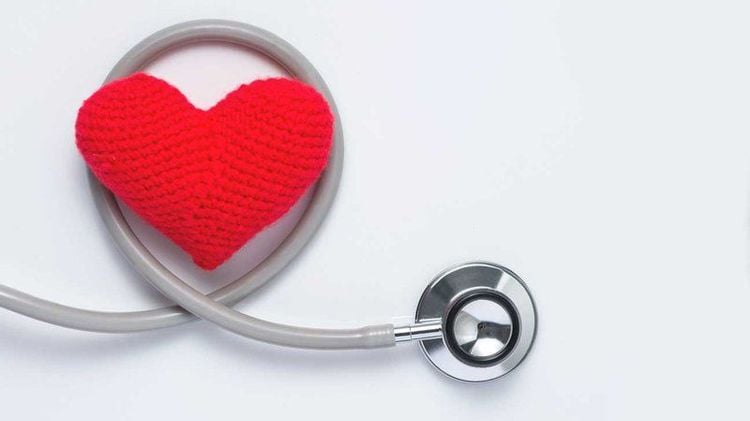
Protein trong đậu phòng giảm nguy cơ mắc các bệnh tim mạch hiệu quả
2.1 Nutrition Facts Here are the nutrition facts for 3.5 ounces (100 grams) of raw peanuts:
Calories: 567 Water: 7% Protein: 25.8 grams Carbs: 16.1 grams Sugar: 4.7 grams Fiber: 8.5 grams Fat: 49.2 grams Saturated: 6.28 grams Monounsaturated: 24.43 grams Polysaturated: 15.56 grams Omega-3 : 0 grams Omega- 6: 15.56 grams Trans: 0 grams Peanuts are high in fat
In fact, they are classified as oilseeds. A large percentage of the world's peanuts are used to make peanut oil (arachis oil).
The fat content ranges from 44% to 56% and is mainly composed of mono and polyunsaturated fats, most of which are made up of oleic and linoleic acids.
Peanuts are a good source of protein
Protein content ranges from 22% to 30%, which makes peanuts a great source of protein.
Peanut proteins, such as arachin and conarachin, can cause severe allergic reactions in some cases and can even be life threatening.
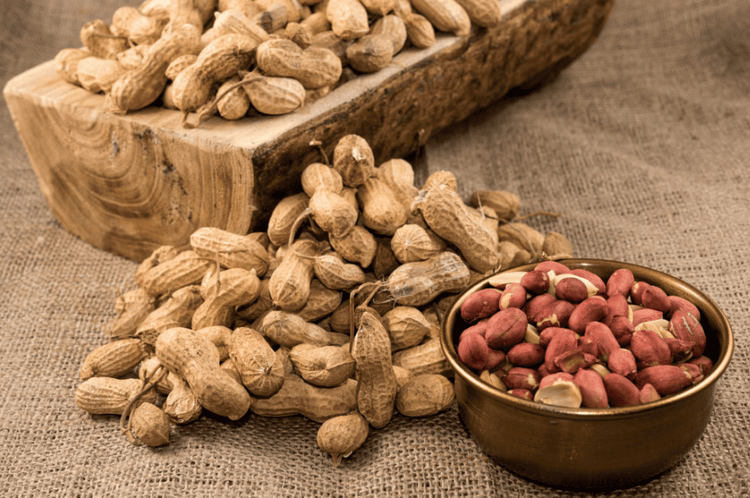
Đậu phộng tiềm ẩn khả năng gây dị ứng nghiêm trọng
Low-carb peanuts
In fact, the carb content of peanuts is only about 13 - 16%. Low in carbs and high in protein, fat, and fiber, peanuts have a very low glycemic index (GI), which is a measure of how well carbs enter your bloodstream after a meal.
This makes peanuts a suitable food for people with diabetes.
Peanuts are an excellent food source of various vitamins and minerals, incl.
Biotin: Peanuts are one of the richest dietary sources of biotin, important during pregnancy Copper: copper deficiency can affect heart health Niacin: Also known as vitamin B3, niacin has various important functions in your body, which have been linked to a reduced risk of heart disease Folate: Also known as vitamin B9 or folic acid, folate has many essential and special functions. Important in Pregnancy Manganese: Manganese is found in drinking water and most foods. Vitamin E: This is a powerful antioxidant, this vitamin is often found in high amounts in foods high in fat. Thiamine: thiamine is also known as vitamin B1. It helps your body's cells convert carbs into energy and is essential for heart, muscle, and nervous system function. Phosphorus: Peanuts are a good source of phosphorus, a mineral that plays an essential role in the growth and maintenance of body tissues. Magnesium: An essential dietary mineral with various important functions, adequate magnesium intake is thought to protect against heart disease.
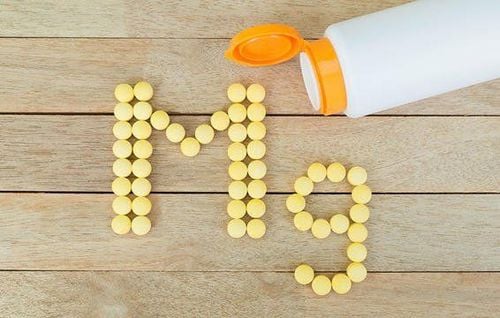
Đậu phộng là nguồn cung cấp Magie tuyệt vời để bảo vệ chống lại các bệnh tim mạch
In addition, peanuts contain other bioactive plant compounds and antioxidants. In fact, they are just as rich in antioxidants as many fruits. Most of the antioxidants are found in peanut skins. Here are some of the antioxidants found in peanuts:
p-Coumaric acid: This polyphenol is one of the main antioxidants in peanuts. Resveratrol: this is a powerful antioxidant that can reduce the risk of cancer and heart disease. Isoflavones: associated with a wide range of positive health effects. Phytic Acid: Found in plant seeds, including nuts, phytic acid may decrease the absorption of iron and zinc from peanuts and other foods. Phytosterols: Peanut oil contains significant amounts of phytosterols, which reduce the absorption of cholesterol from the digestive tract. 2.2 Peanut Benefits Weight Loss: Peanuts are thought to be involved in weight maintenance. Despite being high in fat and calories, peanuts don't seem to contribute to weight gain. In fact, studies have shown that peanut consumption can help maintain weight and reduce the risk of obesity. In addition to being a weight loss-friendly food, peanuts have been linked to a number of other health benefits.
Heart Health: Heart disease is one of the leading causes of death worldwide. Observational studies indicate that eating peanuts, as well as other nuts, may protect against heart disease. These benefits may be the result of various factors. Notably, peanuts contain several heart-healthy nutrients. These include magnesium, niacin, copper, oleic acid, and many antioxidants, like resveratrol.
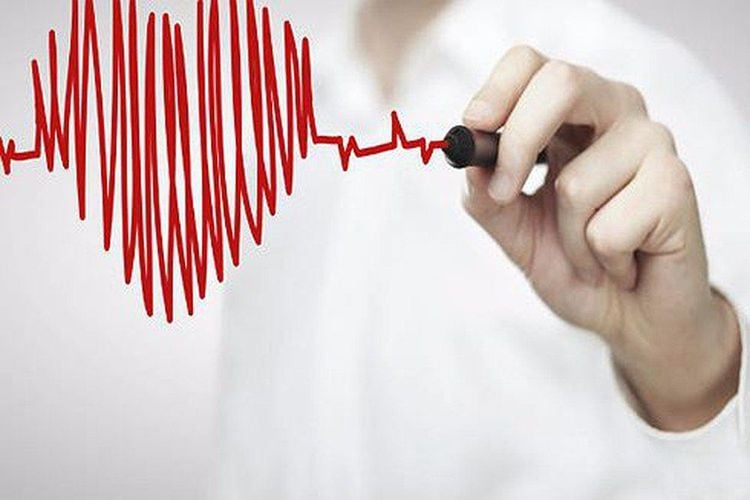
Bổ sung các loại hạt trong thực đơn mỗi ngày để có một trái tim khỏe mạnh
Prevents Gallstones: Studies show that regular peanut consumption can reduce the risk of gallstones in both men and women. Since most gallstones are mainly composed of cholesterol, the cholesterol-lowering effect found in peanuts may be to blame. However, consuming peanuts can also cause some unwanted effects. such as:
Aflatoxin poisoning : Peanuts can sometimes be contaminated with a mold (Aspergillus flavus) and produce aflatoxin. The main symptoms of aflatoxin poisoning include loss of appetite and jaundice, which are typical signs of liver problems. Severe aflatoxin poisoning can lead to liver failure and liver cancer. The risk of aflatoxin formation depends on how the peanuts are stored. The risk increases with warm and humid conditions, especially in the tropics.
Aflatoxin status can be effectively prevented by properly drying peanuts after harvest, keeping temperature and humidity low during storage.
Antinutrients: Peanuts contain a number of antinutrients, which are substances that reduce your nutrient absorption and reduce nutritional value. Among the antinutrients in peanuts, phytic acid is particularly notable. Phytic acid (phytate) is found in all nuts. In peanuts, it ranges from 0.2 - .5%. Phytic acid reduces the iron and zinc in peanuts, reducing the nutritional value
This is usually not a concern when you follow a balanced diet and regularly eat meat. However, it can be a problem in developing countries where the main food source is grains or legumes.
Allergy to peanuts: Peanuts are one of the most common food allergens. Peanut allergy is estimated to affect about 1% of Americans. Peanut allergies are potentially life-threatening, and peanuts are sometimes considered the most serious allergen. People with allergies should avoid consuming peanuts and all peanut-based products. Customers can directly go to Vinmec Health system nationwide for a checkup or contact the hotline here for support.
Articles refer to the source: healthline.com





